Five Columbia Researchers Named 2022 Sloan Research Fellows
Five scientists were recognized for outstanding contributions to their field.
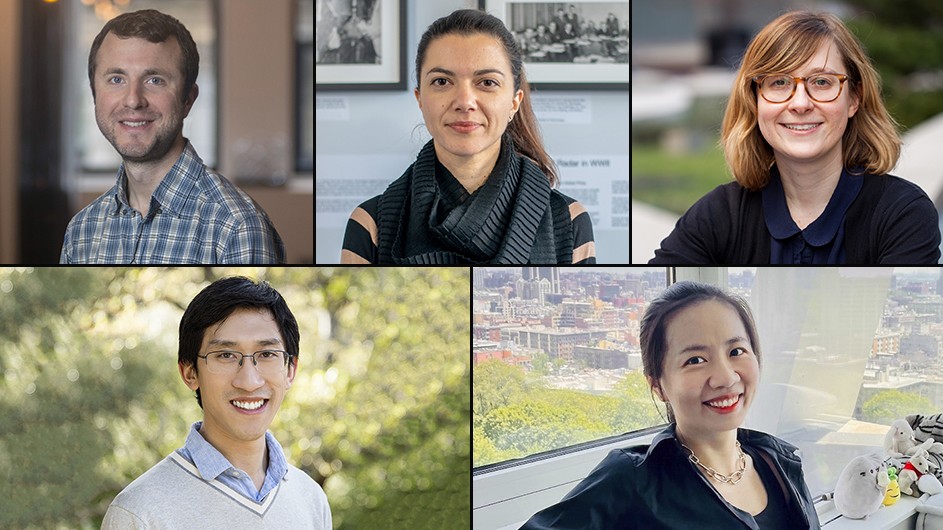
News coverage
Five Columbia faculty members have won 2022 Sloan Research Fellowships for achievements early in their careers that mark them as leaders among the next generation of scientists. Since the first Sloan Research Fellowships were awarded in 1955, 172 Columbia faculty have received one. The Alfred P. Sloan Foundation’s 2021 class of fellows include 128 scientists and scholars from more than 58 colleges and universities in the United States and Canada. Winners receive a $75,000 fellowship to further their research.
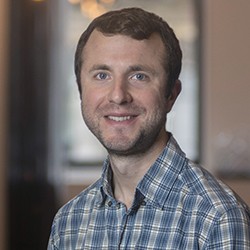
J. Colin Hill
J. Colin Hill, an assistant professor of physics, is studying the origins and evolution of our universe by observing leftover heat from the early days of the cosmos, called the cosmic microwave background. An expert in cosmological theory and data analysis, he has helped to explain how the emission of polarized dust particles from the Milky Way may contaminate microwave data, and through theoretical models, attempted to explain why the universe appears to be expanding at different rates in different types of measurements. As a leader at the Atacama Cosmology Telescope and Simons Observatory in Chile, he has made pioneering measurements of the gas in and around galaxies that fuels the formation of stars in our current universe.
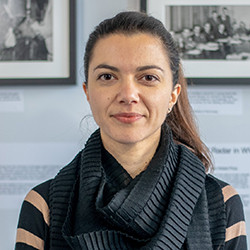
Georgia Karagiorgi
Georgia Karagiorgi, an associate professor of physics, is a particle physicist who has spent the last decade addressing fundamental questions in particle physics: whether additional neutrino states may exist in nature, and whether neutrinos behave in ways inconsistent with the standard model of particle physics. Her research includes building high-precision instruments to detect rare particle interactions and developing machine learning techniques to pick out extremely subtle signals in real-time particle interaction data.
RELATED: Searching for Ghostly Neutrinos to Understand Why Matter Dominates the Universe
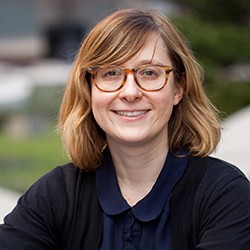
Karen Kasza
Karen Kasza, an assistant professor of mechanical engineering at Columbia Engineering, studies the physics underlying how living matter changes shape, moves, and grows. A major focus of her work is understanding how tissues in fruit fly embryos take on the shape and form they do; with implications for understanding human health, birth defects, and cancer. She recently showed that living tissues can transition from solid to liquid-like states to help sculpt the developing embryo. She is also working on new strategies to engineer tissues, including light-gated tools to control the structure and movement of living tissues.
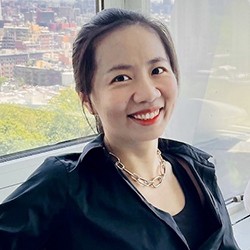
Shuran Song
Shuran Song, an assistant professor of computer science at Columbia Engineering, has helped define and lead the emerging field of embodied intelligence, based on the idea that robots (and humans) learn best by actively perceiving and interacting with the world. Her work is currently focused on training machines to perceive and recognize soft objects that change shape, like the clothes in your laundry basket, by interacting with and unfolding them. As a researcher and educator, Song has pushed for greater diversity in AI by working with nonprofits like the AI4All summer program.
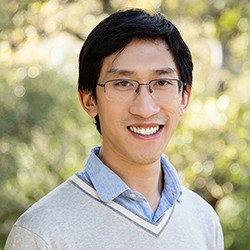
Henry Yuen
Henry Yuen, an assistant professor of computer science at Columbia Engineering, is developing the theoretical foundations of quantum computing that will underpin the next generation of ultra-fast machines that crunch qubits, or units of information existing in multiple states at once. His research focuses on how strange aspects of quantum physics, like quantum entanglement of distant particles, can change the nature of information processing and cybersecurity. He also hosts the podcast, Nonlocal, which refers to ‘nonlocal correlations,’ or the spooky outcomes that arise from entangled particles.
RELATED: Untangling Quantum Information at Columbia